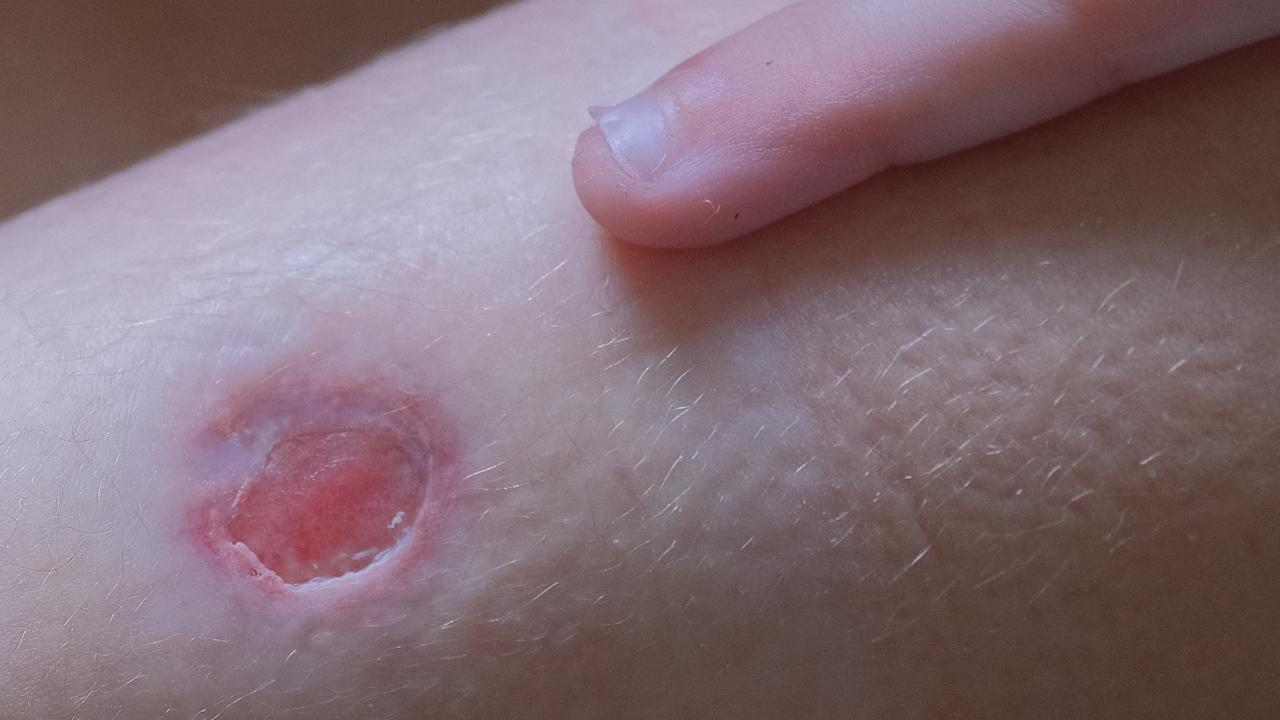Record numbers of buruli ulcers, gastro, whooping cough in Geelong in 2024
Crypto gastro, anaphylaxis, and flesh eating ulcers were just some of the dangerous diseases that were on the rise in Geelong in 2024.

Geelong
Don't miss out on the headlines from Geelong. Followed categories will be added to My News.
Geelong recorded its worst year on record for several dangerous diseases, including a concerningly high number of “crypto” cases and a big uptick in whooping cough.
The region recorded 520 cases of whooping cough in 2024, compared to just 38 in the previous two years.
Cases of Mycobacterium ulcerans, the bacterium that causes the buruli ulcer skin infection, were at a record high.
The 48 cases of the flesh-eating ulcer surpassed the 46 recorded in 2022, the previous highest total.
The epidemiology team at the Barwon South West Public Health Unit (BSWPHU) said buruli ulcer cases included those exposed in existing endemic areas, as well as those from emerging areas of transmission.
Geelong also saw a significant number of cryptosporidiosis, or “crypto”, cases in 2024, with the 160 cases five above the five-year average.
Just 59 cases were recorded in 2023 and 25 in 2022.
“Crypto” is a diarrhoeal illness that is very tolerant to chlorine disinfection.
Swimming pools across Geelong were forced to close several times throughout 2024 so they could be cleaned after being attended by infected people.
“Similar increases were observed Victoria-wide, as well as in Queensland and New South Wales,” the BSWPHU spokesman said.
Geelong council acting chief executive Tennille Bradley said City Hall had not been notified of any cases within Geelong pools since August, but they still proactively cleaned public pools on Christmas Day.
“While the facilities close on Christmas Day, the city takes the opportunity each year to superchlorinate the pools as a precautionary measure,” she said.
Ms Bradley said council continued to promote healthy swimming tips.
The BSWPHU also reported higher legionella cases, with 11 cases across the region.
The spokesman said more were linked to overseas travel or connected to an outbreak in Melbourne.
Reported cases of anaphylaxis, rotavirus and influenza were all above the five-year average.
Higher case rates were also seen in gonococcal infections, possibly due to increased testing.
Varicella, commonly known as chickenpox, typhoid fever, and respiratory syncytial virus all reported stable numbers.
Lower case numbers were reported for salmonellosis, tuberculosis, chlamydia trachomatis infection, and syphilis.
More Coverage
Originally published as Record numbers of buruli ulcers, gastro, whooping cough in Geelong in 2024







